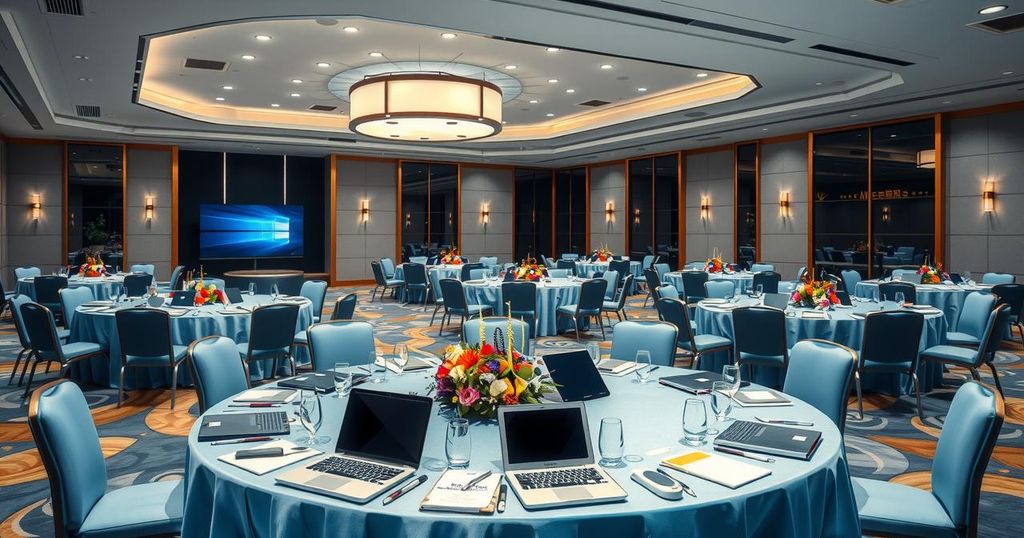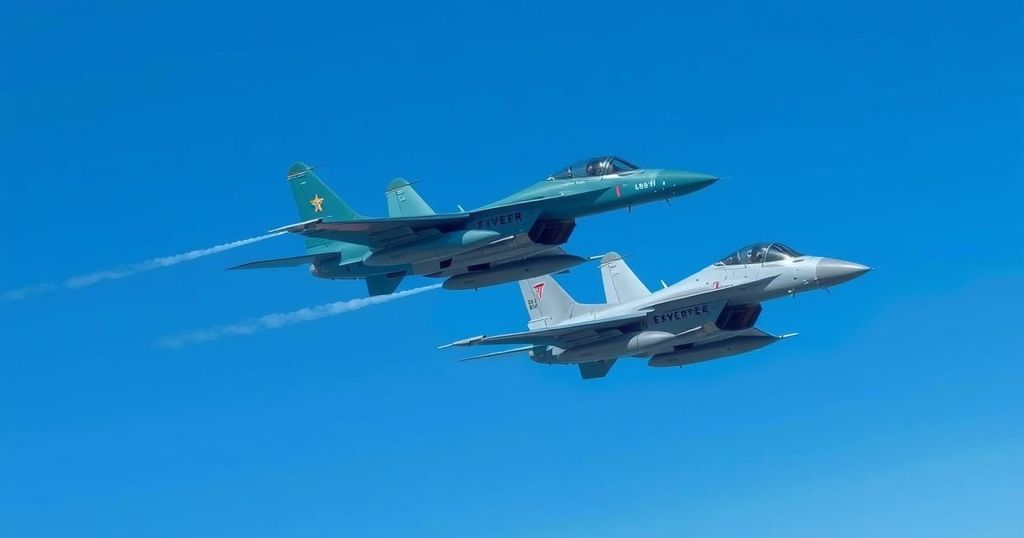China Invites American Business Leaders Amid Ongoing Tariff Discussions
This article discusses China’s attempts to engage American business leaders amid the Trump-era tariff war, featuring discussions with major CEOs and highlighting investment opportunities while addressing economic risks. Key figures recognize the impact of tariffs and the significance of U.S.-China relations for mutual development.
China has engaged American business leaders this week during a conference designed to underscore its economic potential amidst the ongoing tariff conflict with the Trump administration. Top executives from leading firms such as Apple, Pfizer, Boeing, and Citi participated in discussions with Vice Premier He Lifeng, aimed at stabilizing foreign investment in light of recent U.S. tariffs, which include a 10% tax on all imports from China.
Despite uncertainty surrounding the forthcoming April 2 tariffs and their potential effects on both China’s economy and American consumers, Beijing seeks to mitigate the impacts of the trade war through increased domestic production and foreign investment. Vice Premier He Lifeng characterized the Chinese economy as “highly resilient” and affirmed the country’s intention to enhance the investment climate for multinational companies.
During the conference, GOP Senator Steve Daines of Montana, a Trump ally, met with Chinese Premier Li Qiang, recognizing the significance of U.S.-China business relations. He reiterated calls for Beijing to curb the flow of fentanyl precursor chemicals to the U.S. and addressed the expiration of American beef export permits, which has severely impacted U.S. beef sales.
Li Qiang emphasized that trade wars yield no winners, advocating for openness and cooperation over tariffs to address trade imbalances. Chinese officials assert that enhanced cooperation could generate mutual benefits while noting the detrimental effects of tariff imposition.
President Trump has utilized tariffs against various countries beyond China, including Canada, Mexico, and the European Union, as part of his economic strategy. Anticipation surrounds potential new tariffs on April 2, which the President has dubbed “liberation day.”
During the conference, Citadel CEO Ken Griffin expressed a mood of optimism among American business leaders, remarking on Trump’s commitment to the global market while also acknowledging his willingness to impose tariffs. Nonetheless, Isaac Stone Fish, CEO of Strategy Risks, cautioned that the greatest risk for U.S. companies operating in China lies not in tariffs but in political repercussions relating to their business exposure in the region.
Apple CEO Tim Cook’s visit to a tech center in eastern China coincided with discussions to deepen investment ties with the country. Following a meeting with the Chinese commerce minister, Apple pledged to invest $4.1 million in Zhejiang University, known for cultivating top tech talent, although concerns arise about the donation effectively benefiting the Chinese Communist Party.
Experts highlight that U.S. companies face significant challenges in China, including potential regulatory conflicts, fierce domestic competition, and intellectual property theft, alongside the broader risk of geopolitical tensions. Stone Fish points out that many corporations miscalculate the risks associated with their operations in China, which could expose them to a myriad of complications, including national security concerns.
In conclusion, the recent conference in China highlighted the nation’s efforts to attract American business leaders amidst the tariff war with the Trump administration. Notable executives engaged in dialogue on investment opportunities while addressing the complexities and risks associated with doing business in the region. As the economic landscape continues to evolve, both U.S. cooperation and the overarching political dynamics remain pivotal for future business relations.
Original Source: www.foxbusiness.com








Post Comment